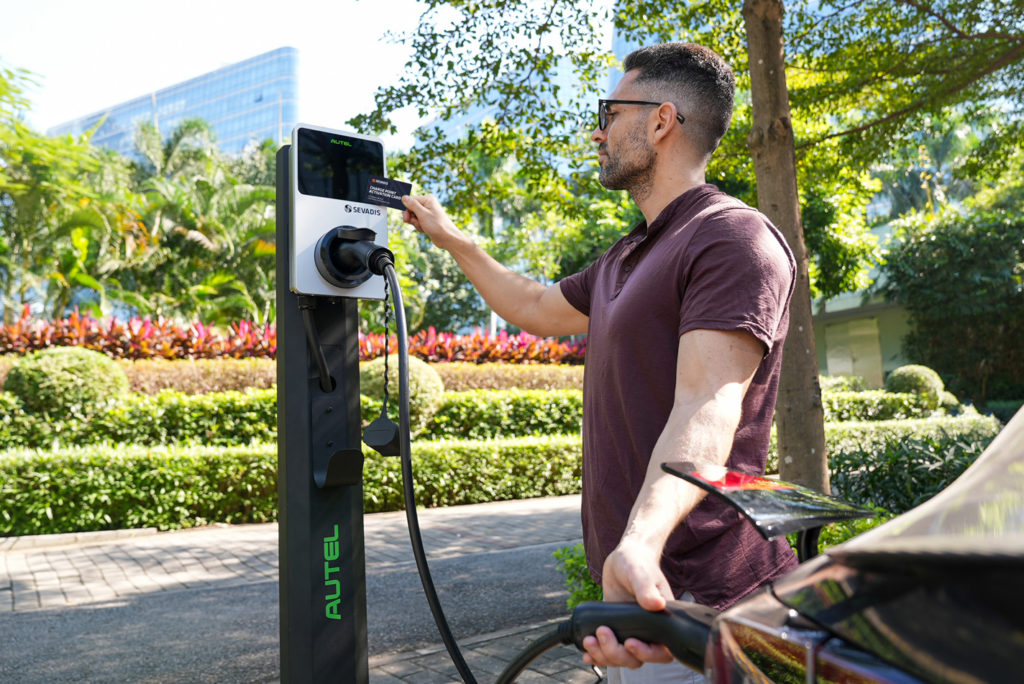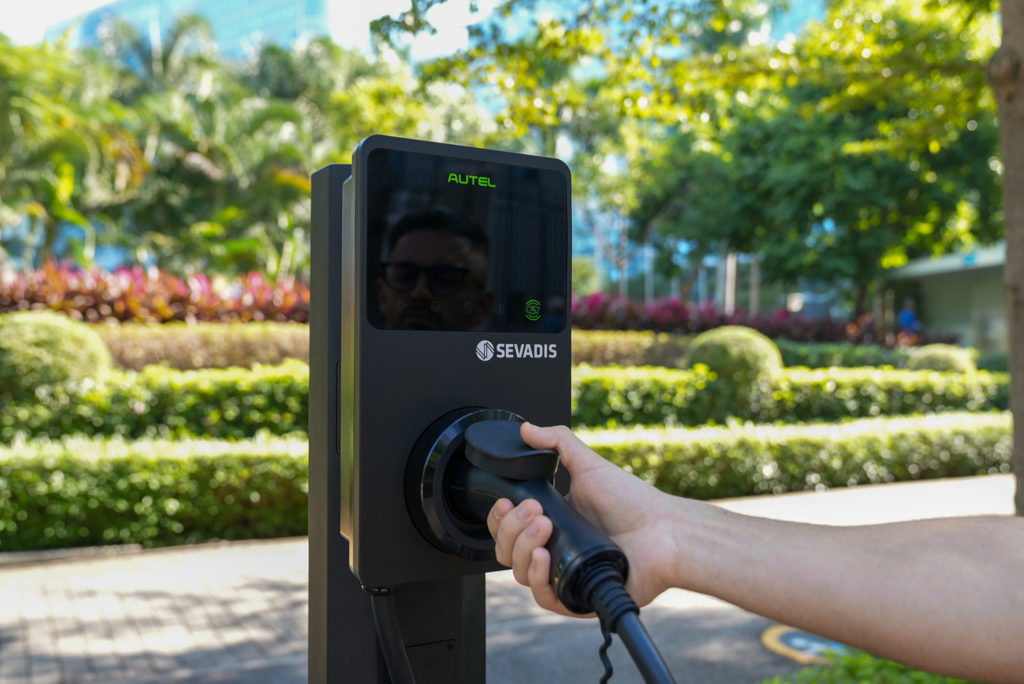Craig Slater, Managing Director at Sevadis, discusses the future of EV charging for local authorities and social housing providers.
Undoubtedly, we are experiencing an EV revolution — something that most would have shrugged their shoulders at only a decade ago. Gone are the days when the population had little confidence in electrification. Month by month electric vehicle registrations are surging like never before and as a result of this, the demand for electric vehicle charging infrastructure increases. Local authorities and social housing providers play a crucial part in the roll-out of the nation’s network of EV charging points, however, we understand that this remains a topic that requires greater clarity from industry professionals.
Firstly, let’s talk about funding. The Department for Transport has now invested over £2bn towards making the nation a cleaner and greener environment, ensuring that we meet our 2050 Net Zero targets. A significant proportion of this funding is allocated to the deployment of EV chargepoint installations, targeting businesses, organisations, local authorities and electric vehicle drivers.
With a notable percentage of people without private parking, local authorities are provided with grant funding incentives to install on-street EV charging, enabling drivers to recharge their vehicles if they do not have a driveway or garage.
Local authorities can take advantage of up to £7,500 per charging socket under the On-street Residential Charging Scheme (ORCS), which should cover 75% of the overall installation costs. By taking advantage of this sum, not only does it allow current EV drivers without private parking to recharge, but it also encourages non-EV drivers to take electrification into consideration.
We know from experience that drivers are reluctant to switch, especially those without the means to recharge their vehicles at home, however, the installation of on-street EV charging facilities ultimately provides the peace of mind that drivers are seeking before making the switch.
Funding for social housing providers
Grant funding is now available for social housing providers, enabling them to benefit from £350 per charging socket and a maximum of 200 applications for their premises. Prior to the introduction of this new grant funding, there were many social housing providers that were taking EV charging into consideration, however were conscious about the costs associated with installations. This new grant funding initiative alleviates such expenditure and provides social housing providers with the means to deploy charging points across their portfolio of properties.
Trends present that there are many prospective homeowners/renters seeking to invest in property with the facilities to recharge; this trend is not only apparent amongst current EV drivers, but drivers who are actively pondering the switch for the future.
 EV charging challenges
EV charging challenges
There are several challenges that local authorities and social housing providers face when it comes to EV charging. Are the charging points easy to install? Can I generate additional revenue to recoup the associated costs? Do I have enough supply to accommodate EV charging at my premises?
For organisations to gain confidence in the deployment of EV charging points, the charging point itself must be easy-to-install, as well as easy-to-operate; a seamless process for all parties involved is paramount to increasing trust. Return on investment is also a topic of conversation when deliberating EV charging points, however one that is easily solved when choosing a smart back-office management system that offers billable charging for different user groups.
When thinking about the deployment of charging points, it is common to contemplate whether your site has sufficient power to distribute, but as the industry has evolved, there are now options that allow you to recharge vehicles on site when supply is restricted via dynamic load balancing. Questions about EV charging are not unusual, as a nation we are still in early stages of deployment — the best advice we can provide is that you ask those questions, and more than likely, there will be a solution to meet your requirements.
With the implementation of mandatory EV charging points for new-build developments, as well as smart charging regulations, now is the ideal period for local authorities and social housing providers to install charging points at their premises. The rise in electric vehicles continues, with that comes a requirement for the facilities to recharge;
both local authorities and social housing providers can play a pivotal role in shaping the future of electrified transport.
 Complete solution
Complete solution
At Sevadis, we provide an end-to-end solution for all requirements; whether that be a public destination, a car park, a private underground car park or a single-unit property. Our combination of EV charging hardware and software solutions enable local authorities and social housing providers to offer charging facilities to electric vehicle drivers, whilst increasing green credentials, generating ROI and potential profit in the future.
We understand the pain-points in EV chargepoint installations; we understand the requirement for more education in the industry around the challenges and opportunities that EV charging presents and we understand that for the EV revolution to continue, we must work together to provide seamless charging experiences for the growing number of EV drivers on the UK’s roads.
Our team comprises individuals with over 15 years of collective experience in the EV charging sphere — that combined with our determination to make EV charging accessible for all, Sevadis is a go-to chargepoint provider for both local authorities and social housing providers.









